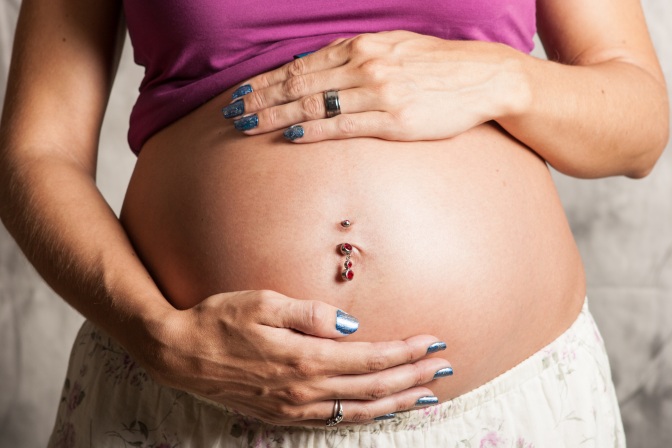BuzzFeed has on occasion published some cool pro-life material, but on the whole has a rep for superficial emotionalism that’s sadly well suited to the short attention spans of the Facebook generation. And despite going into extensive detail on a horrifying personal experience, Paola Dragnic’s article, “The Abortion That Let Me Be a Mother,” fails to dissuade that notion.
A Chilean journalist, Dragnic writes of experiencing severe nausea, vomiting, and bleeding in the course of a very wanted pregnancy, which eventually led to a diagnosis of triploidy, a rare condition that is almost always fatal to the baby and highly dangerous to the mother, and a battle to get an abortion despite its illegality in Chile:
The doctor confirmed that it was triploidy and told us: “It’s serious, we have to take it out, but we can’t do it in Chile. Do you have enough money to travel?”
Marcelo and I stared at one another. The answer had to be yes, even though we were broke.
So I had two overwhelming things to add to my unbearable physical state: I was not going to be a mother, and I was going to die if I didn’t leave the country to abort my pregnancy.
It’s taken this long for me to be able to talk about the degree of violence I had to endure, especially from the Chilean government. In a matter of seconds, I stopped being a cute, chubby pregnant woman and became a kind of walking coffin for a half-dead unborn child who was killing me.
She describes trying to scrounge together money and pull strings to travel to Florida to get the abortion, looking into suing the Chilean government, and cursing the law:
What were the doctors waiting for? For the fetus to die so they would not have legal trouble. For me to travel overseas. Or for my life to be at absolutely at risk, so they would have an indisputable reason to “save me.”
The Chilean government was torturing me. It was risking my life by denying my right to an emergency health procedure.
Eventually, Dragnic collapsed in shock and was rushed to an emergency room, where a doctor confirmed that her condition was lethal and told her “that the clinic’s Ethics Committee had authorized him to do whatever it took to save me.” One abortion later, the crisis had passed, her baby was dead, and her uterus was intact.
Today she has two healthy children, a boy and a girl…“all thanks to an abortion that allowed me to be a mother.” Her daughter “knows perfectly well that her mom had another pregnancy before her, but it didn’t work so they had to end it.”
Someday, Sofía will be a woman like me, and I don’t want her, or any other woman, to be tortured by a deaf government that makes us suffer in the name of a false morality.
From Dragnic’s account, this was no case of “inconvenience” or casual disregard for her child’s welfare. I know that all our hearts break for her ordeal.
But whatever impact stories like hers may or should have on Chilean policy regarding extreme pregnancy complications, what does it have to do with either the broader abortion debate or American abortion policy?
Virtually no pro-lifer in the country would forbid doctors from saving a woman’s life at the expense of her child’s. Some may quibble over semantics over when such treatment qualifies as an abortion, but the outcome is the same.
All major bills currently before Congress that directly place restrictions on abortion—the No Taxpayer Funding for Abortion Act, Pain-Capable Unborn Child Protection Act, Child Interstate Abortion Notification Act, Title X Abortion Provider Prohibition Act, and Ultrasound Informed Consent Act—contain life-of-the-mother exceptions. Whenever I challenge pro-aborts to produce an example of a state pro-life bill that doesn’t have one, they always come up empty.
So how does this question have any bearing on our abortion debate, other than to dissuade people from doubting abortion’s legitimacy? How would conceding abortion’s necessity in extremely limited circumstances demonstrate that we should keep it legal in any lesser circumstances?
Notably, Dragnic writes that her mother-in law agreed with abortion in her case despite being “a self-proclaimed anti-abortionist who is very religious and a part of the most conservative right wing of Chile,” but does not pause to ponder whether she should follow her example of nuance and consider whether abortion—which she paints as an unconditional blessing, opposition to which was a torturous “false morality”—has a dark side. She did start out wanting the baby it killed, after all.
From time to time, Live Action shares stories of women who made the opposite choice, to risk and sacrifice their own lives that their sons and daughters might live. For them, the humanity and soul and value of what they carried meant everything. To be clear, I’m in no way saying their example should invalidate Dragnic’s. None of us truly know what we would do in any of their shoes, and different situations where the odds of survival for both mother and child can vary wildly are not perfectly analogous.
The point is that any discussion of abortion, particularly one rooted in firsthand experience, is incomplete if it ignores the party it most deeply affects. Seeking sympathy for abortion seekers yet having none to spare for abortion targets completely undermines the ostensible purpose of accounts like Dragnic’s. Compassion is a two-way street.







